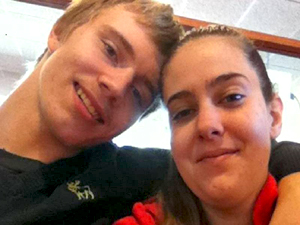Washington, May 26: A man attempted suicide by firing a bullet to his head but it went through him and fatally struck his girlfriend while leaving him severely wounded, according to US prosecutors.
Victor Sibson, 21, from Anchorage, Alaska, has been accused of killing his girlfriend while attempting to kill himself.
He appeared in court on Sunday and a grand jury indicted him on a charge of second-degree murder.
Police responded to a 911 call in at a club at an apartment complex in Midtown last month and found Sibson and 22-year-old Brittany-Mae Haag suffering from critical gunshot wounds.
First responders transported both to a local hospital, but Haag died later in the day.
Prosecutors believe the incident involved a single bullet.
"He had an entry wound on the left side of his head, he had an exit wound on the top of his skull," assistant district attorney James Fayette told KTVA.
He said evidence shows the bullet likely hit Haag, striking her vital organs, after it exited Sibson's skull.
A month after the shooting, Sibson turned himself into Anchorage police.
He wore a helmet that covered his injuries as he faced a judge.
Sibson said he is unemployed, cannot afford the set USD 250,000 bail, and asked the judge, "Could we figure out if I'm guilty or not today?"
The judge entered a procedural 'not guilty' plea on Sibson's behalf.If convicted, Sibson faces up to 99 years in prison.





Comments
Add new comment